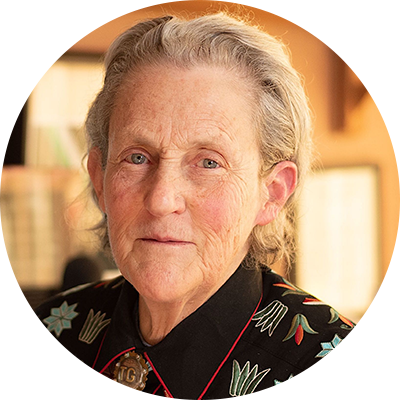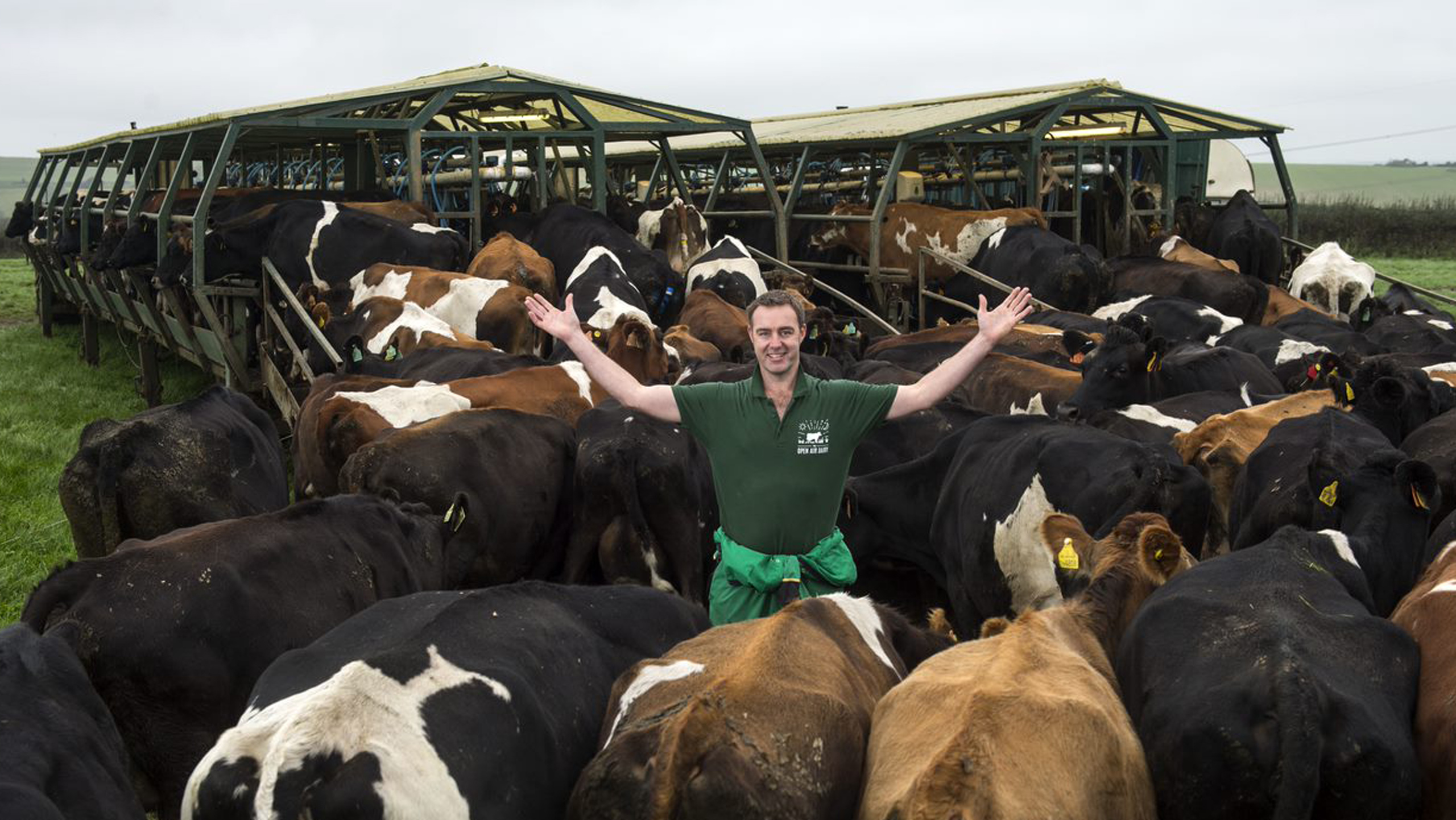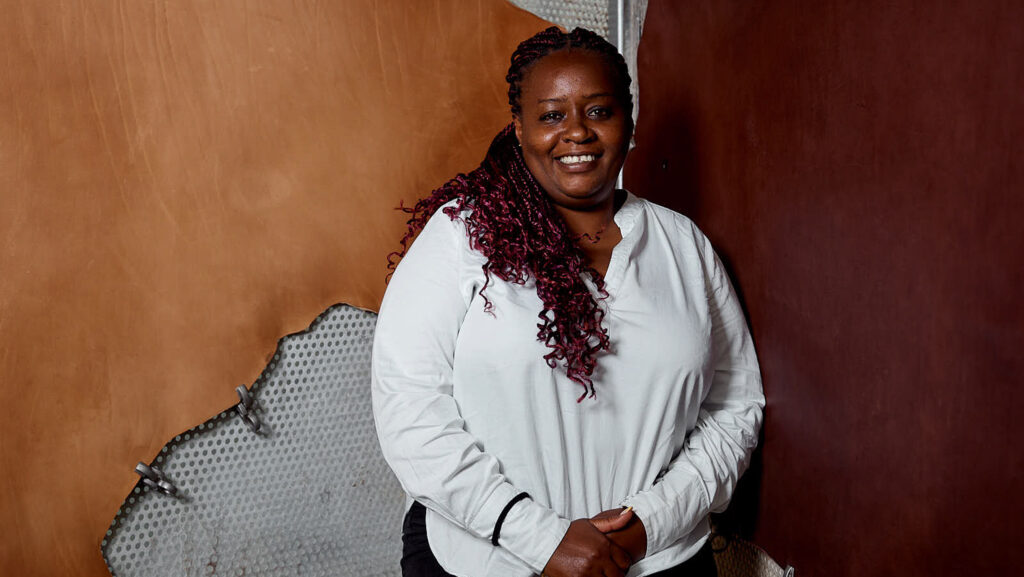Why agriculture needs people with neurodivergent strengths
 © Adobe Stock
© Adobe Stock Agriculture needs people with different ways of thinking, and the industry should be encouraging them to work in the sector if it is to thrive.
That’s according to Dr Temple Grandin, an autism expert who has written books and guides on the subject, including The Autism Brain and Visual Thinking.
She is an inspirational speaker and autism advocate – her TED Talk “The World Needs All Kinds of Minds” has been watched millions of times.
Temple is also an expert in animal behaviour and teaches livestock handling at Colorado State University.
She worked for 25 years designing and constructing livestock handling equipment for the humane slaughter of cattle based on insights enabled by her visual thinking.
See also: Why neurodiversity and entrepreneurship go hand-in-hand in farming
A Farmers Weekly survey has found that the number of people with neurodivergent conditions in UK farming may be more than double the rate found in the general population.
Along with visual thinking, the other top skills ticked by neurodivergent individuals as being beneficial to their roles in farming were problem solving, creativity, attention to detail, big-picture thinking, resilience, hyperfocus, pattern recognition, empathy and innovation.
We spoke to Temple about the challenges of growing up with autism and the benefits that neurodivergent skills and strengths can bring to an agricultural business – and the sector as a whole.
And we hear from two UK agricultural engineers who are making their mark in the industry.
Growing pains
Growing up in the US in the 1950s before autism was widely recognised, Temple had severe speech delay and needed intensive speech therapy.
At school she found solace in horse riding: “It was one of the few places where I had friends and I didn’t get bullied,” she says.
Officially diagnosed as autistic in her 30s, Temple did not know it was unusual to “think in pictures” until then.
“I thought everyone was a visual thinker,” she says.
When she was 15, she had her first experience of cattle at her aunt’s ranch. Her visual thinking enabled her to understand them.
“I got down into the chutes to see what they were seeing. If you think visually, it’s obvious you need to see what the cattle are looking at,” she says.
She discovered that cows would be much calmer if they were able to walk into curved, uncluttered chutes.

The 2010 HBO film about her early life concludes that more than half the cattle in North America are handled in humane systems she designed.
But now Temple is worried about the maintenance of these systems as the visual thinkers who are great at fixing them are not being encouraged into the industry.
Visual thinkers are not getting early exposure to subjects they can excel in partly due to the decline of shop classes in the US where vocational, practical skills are taught.
She says: “Visual thinkers are often really good at working with animals and inventing and repairing mechanical devices, but may not be good at abstract maths so they get shunted into special education.”
Animal welfare
Temple believes that children need to play and learn from levers and pulleys at a young age, and maths requirements for practical jobs and courses should be rethought to make sure people with essential neurodivergent skills are not being screened out.
Now in her 70s, she is still involved in the design of beef processing facilities and she is proud of the system she created to evaluate meat packing plants, which is used worldwide for companies such as McDonald’s.
Temple believes in the sharing of knowledge, and her research papers are freely available online.
She has recently published research on the role of grazing in sustainable farming, and about the overbreeding of cattle which is resulting in heart failure and deformity.
“We’ve got to give animals a decent life and can’t be breeding animals so that bad becomes normal,” she says.
It is important to her as an autistic role model to maintain her distinct position in the agriculture industry – and she is passionate that the industry needs to have space for different types of minds.
“We need the skills these people have,” she says.
Tom Foot, Open Air Dairy, Dorset

Tom Foot © BNPS
The Open Air Dairy is a pioneering business where the free-range cows are milked in the field and live out in the open air year-round, apart from when they are calving.
Tom Foot designed and built the farm’s innovative mobile milking parlours when he and his business partner and best friend, Neil Grigg, took on a tenancy on an arable farm in Dorset that did not include compensation for improvements.
This was in 2009 after an upsetting succession dispute on Tom’s family holding, which left him without land to farm.
The solution to having no cash for a risky investment was the mobile parlours.
“We knew we could drive our investment away with us if the tenancy ended,” says Tom.
Fifteen years on, the business has 940 cows across two sites and its own cheese brand, and Tom and Neil have built mobile milking parlours for other farmers.
With no formal training, Tom was able to design the parlours using his natural ability to understand machinery.
Diagnosed as dyslexic when he was seven, Tom struggled with school, which tended to focus on the things he couldn’t do (English) rather than the things he excelled at, such as mechanical engineering.
Having a neurodivergent brain that thrives on problem-solving and the chaos that farming can bring has also been a clear advantage.
“If everything is going well, I am almost a bit bored. I need something to go wrong and a time pressure to fix it.
“Whether that be financial problems, or practical and mechanical problems,” he says.
This could include designing an on-site cooling system, cost-effective fence posts or adapting the milking parlours across the seasons and in response to adverse weather conditions.
Tom has a positive outlook and his emotional intelligence means he is responsive to the needs of his 12-person team.
They are all given a personality profile when they join the company, which aids communication and helps the business to work with their strengths and understand their weaknesses.
The two partners have also been profiled and they have complementary skill sets, while both are also strong entrepreneurs.
This has fared them well as their business has grown and they have not ruled out further expansion but are currently living with uncertainty as the Dorset site has recently changed owner.
Agnes Maina, agriculture inspector, Environment Agency

Agnes Maina © British Pasture Leather/Jason Lowe
Big-picture thinker Agnes Maina is full of ideas to improve the sustainability of the agriculture industry in the UK.
Her grandfather was a farmer in Kenya and she has been growing things since she was two. She finds that working with the soil brings her peace.
After been pushed to pursue a banking career, she switched to agriculture entrepreneurship in the second year of her degree and felt the relief of returning to the industry she loves and excels in.
“It was straight As from then on,” she says.
It was a relief to get a dyslexia diagnosis in her 30s when she had relocated to the UK and was doing a master’s degree in agriculture and development.
She was later diagnosed with attention deficit hyperactivity disorder and autism. Counselling helped her learn about the way her brain works and how her neurodivergent strengths – including systems thinking, resilience and hyperfocus – can benefit the industry.
She works as an agriculture officer but wants to secure a tenancy so she can grow tropical crops for migrant communities with the hope of making them more mainstream.
Having seen the demand for nutrient-rich food for plant-based diets and the fragility of the country’s food security exposed during the pandemic, she says growing “superfoods”, such as callaloo variants that are commonly eaten in Africa and Asia, and improving biodiversity would be a way to strengthen the industry.
Attention to detail and an intense interest for one subject are neurodivergent strengths that have helped Agnes learn as she meticulously documents different ways of growing.
A neurodiverse workforce in agriculture can “make a business more agile”, she says, as the ability to see things differently results in innovation and more resilient food systems.
She wants to integrate tropical crops on established farms by making use of underused equipment, such as polytunnels, and any other resources that are available – but with an eye on the bigger picture.
“It’s about crop diversity, diverse people, food connections, good-quality food, soil health and animals.
“We need to look at it all holistically rather than in tiny pieces,” she says.
Level the Field
Our campaign, Level the Field, aims to make agriculture fairer, more equitable and more inviting for everyone.
By engaging people and organisations across our industry, Level the Field will champion inclusivity for the benefit of farm businesses and all who work in them.
The campaign kicked off in 2024, focusing on women in farming, and is now in its second year, focusing on neurodiversity.
See more on our Level the Field campaign hub.
